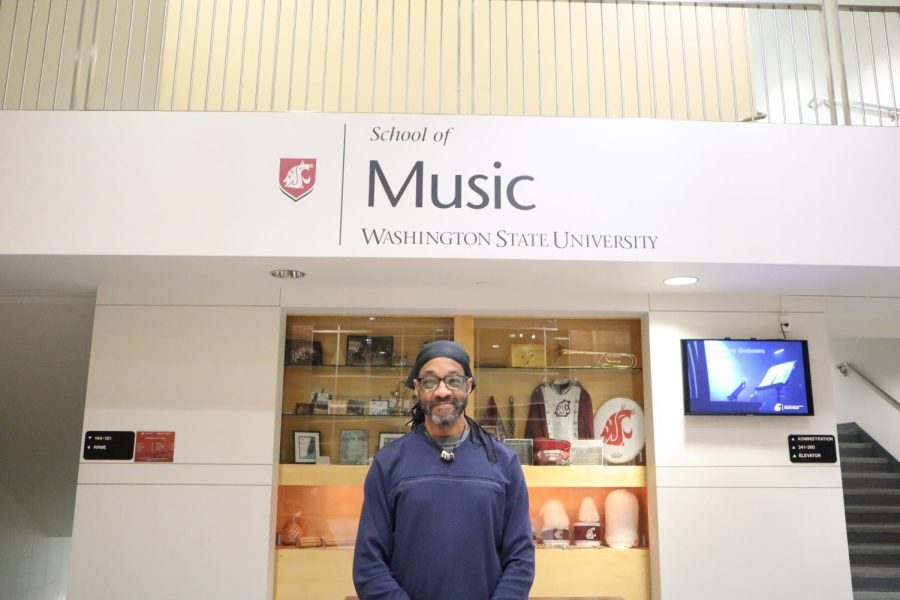Have sex, drugs and rock ‘n’ roll changed since professors were students?
Music professors discuss sex-positivity, stigma of drug use
Darryl Singleton says college students have a more sex-positive outlook.
November 17, 2022
Sex, drugs and rock ‘n’ roll have been a part of North American culture for decades, but the stigma and acceptance of each have changed drastically over time. When WSU professors were in school, their experience was far different than that of current students.
Available resources and knowledge of practicing safe sex have increased, said A.J. Miller, assistant professor of music and assistant director of Cougar Marching Band.
“I feel like students today are way smarter about partying than I or my friends were,” Miller said. “I could be completely wrong, and I’m sure in some cases I definitely am, but I just have this sense that students today are much more aware of the dangers that are out there and try to make sure they protect each other and themselves.”
Despite this newfound awareness, the stigma surrounding sex culture has more or less stayed consistent, just in different ways. Band members on tour in the 60s and 70s were not frowned upon but instead praised for their ability to engage in sexual activity, he said.
Today, many consider it empowering and a conscious choice to engage in “hook-up culture,” but for others, it is still highly frowned upon, Miller said.
“There definitely is a different view on sex these days, I would say. You’ve got ‘it’s just sex’ alongside the whole sex-positive thing, which is everywhere in music,” said Darryl Singleton, assistant professor of Black Music in America and Social Justice.
Students may find themselves unable to picture their professors in the same position they are in now, as they are young, primed and ready to party, he said.
“In general, sex and partying was something that everybody did but was really kept separate from our ‘in-school student’ life. As a musician and a student of [professors], most of whom had been college students and professional musicians at some point, there was a lot of tongue-in-cheek, ‘yeah, we know what you’re doing, after all, we invented it!’” Singleton said.
He said his time in college was similar to what he perceives party life to be like at WSU — relatively contained to Greek Row but a prominent part of college life.
“I was in college from 1980-84. Drugs were highly stigmatized and even [cannabis] smoking was ‘serious’ to a certain extent,” Singleton said.
Stigma does not correlate to drug use, as usage has always been high on school campuses, according to Next Steps.
Now, smoking cannabis is legalized in all but 10 states, and to an extent, has increased in medicinal use. Between 2015-18, prescriptions for medical cannabis increased by nearly 2%, according to Harvard Health.
When Miller attended Indiana State University, he said it tried to decrease the stigma surrounding drug use and provided educational material on how to make safe choices.
“The university campus was generally separate from that in the town, but there was still a large amount of street drugs floating around campus. So, as far as scandals go … there weren’t really any. But there were a fair amount of drugs around … like … a lot,” Miller said.
The one constant of the big three — sex, drugs and rock ‘n’ roll — has been the rock genre. While it may not be as dominant in the music industry as it once was, it still has a prominent role in the industry and in society, he said.
Miller is not one who holds his nostalgia for rock music above the current age of music, appreciating both individually and in tandem, he said.
“I like everything. The new T-Swift album is great. DJ Khaled’s latest album was really strong. I also am listening to the latest remaster of ‘Revolver’ by the Beatles,” he said.
















